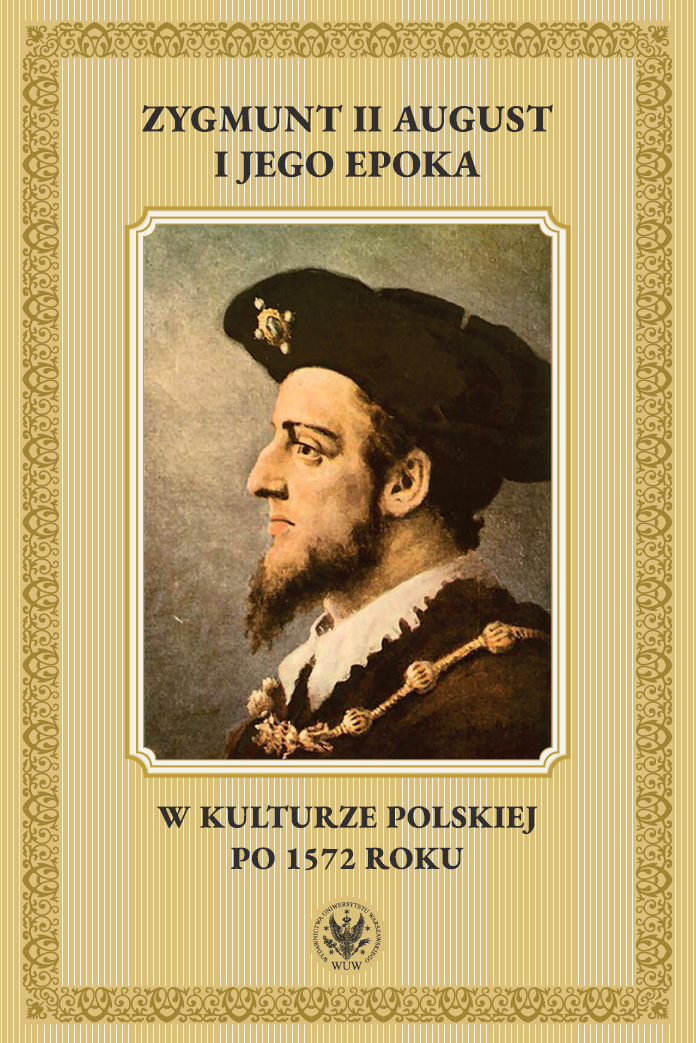Czasy Zygmunta Augusta jako złoty wiek polskich dziejów (wybrane przykłady z drugiej połowy XVI i pierwszej połowy XVII w.)
The Times of Sigismund Augustus as the Golden Age in Polish Literature of the Second Half of the 16th and First Half of the 17th Century (Selected Examples)
Author(s): Michał Kuran
Subject(s): Cultural history, Modern Age, Recent History (1900 till today), 16th Century, 17th Century, 18th Century, 19th Century, Pre-WW I & WW I (1900 -1919), Interwar Period (1920 - 1939), WW II and following years (1940 - 1949), Post-War period (1950 - 1989), Transformation Period (1990 - 2010), Present Times (2010 - today), History of Art
Published by: Wydawnictwa Uniwersytetu Warszawskiego
Keywords: Sigismund II Augustus; Polish literature of the 16th century; Polish literature of the 17th century; assessment of the reign
Summary/Abstract: The aim of the study is to reconstruct the image of the reign of Sigismund Augustus in Polish literature from the second half of the 16th century to the end of the first half of the 17th century. The viewing includes works representing various genres: epigram, chronicle, life, biography, sermon, apology, epic, and formally diverse occasional poetry. It is not, however, about capturing the relationship between the genre and the image of the ruler, but about the process of forming an opinion about the king’s times and achievements, as well as his personal life. The subject of the discussion are works by, among others, Mikołaj Rej, Krzysztof Warszewicki, Łukasz Górnicki, Stanisław Grochowski, Krzysztof Okuń, Joachim Bielski, Aleksander Gwagnin, Marcin Paszkowski, Andrzej Zbylitowski, Samuel Twardowski, Jan Bielski. The times of Sigismund Augustus began to be identified with the golden age, because there was peace in the Crown, the army leaders demonstrated their effectiveness on the battlefields, the conclusion of a union between the Crown and Lithuania, and the introduction of modern system solutions were appreciated. The king was rebuked for his dissolute life, lack of male heir, and indecisiveness.
Book: Zygmunt II August i jego epoka w kulturze polskiej po 1572 roku
- Page Range: 76-108
- Page Count: 33
- Publication Year: 2023
- Language: Polish
- Content File-PDF

